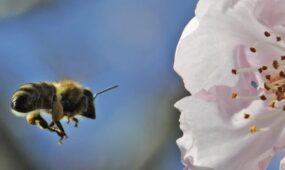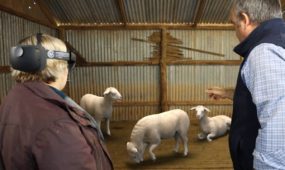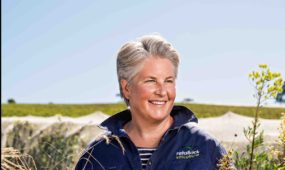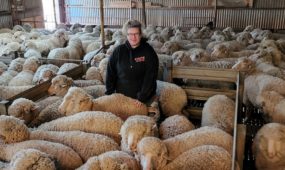Kangaroo meat company jumps at chance to expand in Europe
Primary Industries
THE world’s largest premium kangaroo meat distributor is set to establish a processing plant in Europe to target the home cooking market.

Sign up to receive notifications about new stories in this category.
Thank you for subscribing to story notifications.
Macro Meats commercialised production of kangaroo in the late 1980s and now processes about 10,000 tonnes of the lean red meat a year for human consumption in more than 30 countries.
The South Australian company sells about 75 per cent of its kangaroo products domestically but is looking to grow sales in its major export markets of Europe, North America and Asia.
Next month, Macro Meats will be among 7000 exhibitors at SIAL Paris – the world's largest food innovation show – where it will launch a species-specific range of premium kangaroo meat.
Macro Meats Managing Director Ray Borda said the growth in Europe had been driven by chefs who had professionally prepared the high protein, low fat red meat.
Moving from success in restaurants to finding a place in retail outlets with everyday kangaroo products such as hamburgers, sausages, meatballs and stir-fry strips has been a key to Macro Meats’ success in Australia.
However, export rules require meat to be shipped from Australia in whole pieces, making it less appealing to the cook-at-home market.
“You’ve got to start in the restaurants because they know how to cook it properly but the next stage is allowing the consumer to buy it and that’s why we’re opening our own value-adding processing plant in Europe,” Borda said.
“If you’ve just got lumps of meat or steaks, sometimes it’s a little bit too much when you’re trying to introduce it to people for the first time.
“So we want to be able to do meatballs or burgers or stir fries depending on the country and what they want.
“That’s how people start to buy it and then they progress from there and that’s where you get the growth.”
Borda and other Macro Meats staff will visit several potential sites in Europe following SIAL Paris with a view to setting up the processing plant in about six months.
“This is a pilot plant and depending on how that works we hope to end up having a processing plant in Europe, Asia and the Americas,” Borda said.
“It’s a big investment and not many companies in Australia have ever done what we’re looking to do but we are committed and we’re going to give it a go.
“It’s ambitious but we think we are sitting on gold – Australia is the only place in the world where you can get this product from and if we control it and market it then nobody is going to be able to do it like we do.”
There are an estimated 50-60 million kangaroos in Australia. About 2.5 million kangaroos are commercially harvested a year.
Although only found in Australia, kangaroos are one of the most common large wild land mammals on earth.
Macro Meats’ species-specific range is designed to promote greater consistency for consumers and will include the mild tasting Paroo (red kangaroo), medium flavoured Mallee Roo (western grey kangaroo) and the robust Mulga Roo (eastern grey kangaroo).
“The Australian consumer wants more of a milder kangaroo, whereas Asia, Germany and a few other places like something that’s a bit more robust with a little bit of a stronger flavour,” Borda said.
“Different meat of different ages from different species out of different areas have different moisture content and it tastes different and it cooks different.
“We’re trying to give it consistency.”
Borda said the high quality lean meat was popular among bodybuilders looking for new sources of protein as well as diners looking for a new food experience.
“Restaurants around the world just want something different,” he said.
“It takes a lot of explaining but we’re getting there slowly and it’s so exclusive you can only get it from one place in the world.
“Maybe in the early days people did have what we used to call ‘Skippy-syndrome’ but now it’s changed so much so that our biggest week of the year nationally and internationally is Australia Day week.”
Macro Meats employs about 200 staff at its headquarters in Adelaide and a further 1000 licensed shooters and transport staff to harvest the wild kangaroos. Only male kangaroos are shot before being cleaned and taken to one of 120 cold store depots around Australia. Trucks pick up the kangaroos and take them to the Adelaide plant where they are inspected, graded, skun, boned and butchered.
The kangaroo pelts are exported mainly to China, Italy and Germany where they are turned into footballs, baseball gloves, football boots and motorcycle apparel.
“It’s what they call an athletic leather because it has a unique quality where it is thin and lightweight but at the same time it’s also strong, waterproof and it breathes,” Borda said.
Jump to next article



